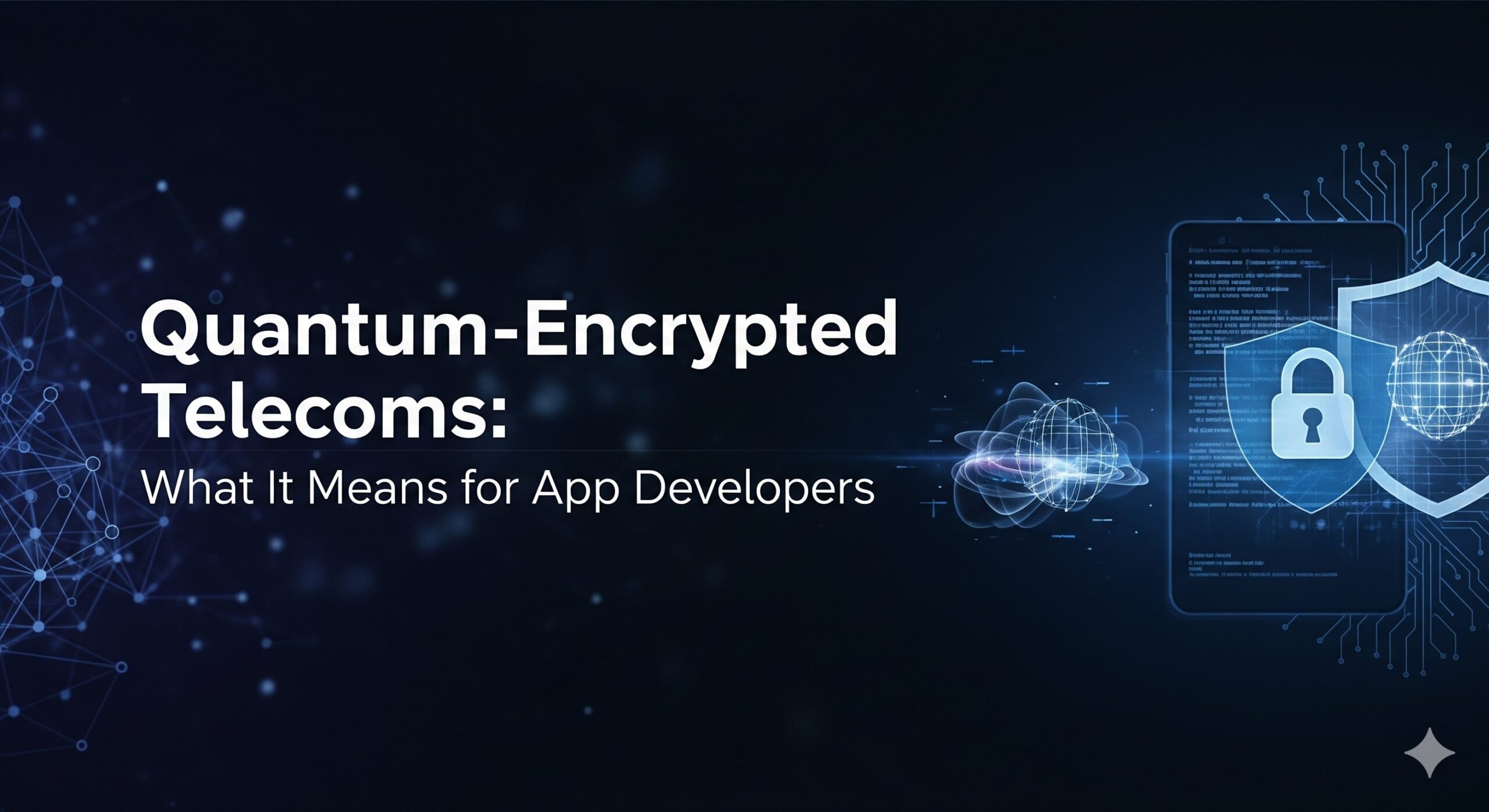The rise of quantum-encrypted telecoms is set to reshape how we think about digital communication, data privacy, and application security. For app developers, this technological shift is both a challenge and an opportunity. As businesses and governments move toward quantum-level security, developers and any mobile app development company must rethink the way they build, secure, and scale applications.
In this blog, we’ll break down what quantum-encrypted telecoms mean, why they matter, and how they will impact the world of mobile app development in the coming years.
What Are Quantum-Encrypted Telecoms?
Traditional telecom networks rely on cryptographic methods like RSA or AES to protect communication. While effective today, these methods could be easily broken by quantum computers in the future. That’s where quantum encryption comes in.
Quantum-encrypted telecoms use Quantum Key Distribution (QKD), a method that relies on the principles of quantum mechanics to transmit data securely. In simple terms, any attempt to intercept quantum-encrypted communication immediately disrupts the data, alerting the sender and receiver of a breach attempt.
This offers near-unbreakable security, which is why industries like banking, healthcare, defense, and telecom are investing heavily in quantum solutions.
Why Should App Developers Care?
At first glance, quantum encryption might feel like an issue for network engineers or cybersecurity teams. But for app developers, the shift is crucial for several reasons:
- Data Security as a Priority
Consumers are becoming more aware of data breaches and privacy risks. Apps that can integrate with quantum-encrypted telecoms will be seen as safer, giving them a competitive advantage in the market. - Changing Security Standards
As quantum telecoms expand, mobile app development companies will need to adopt new encryption frameworks that align with quantum-safe protocols. Ignoring this could make apps outdated and insecure. - Opportunity for Innovation
Developers who adapt early can build apps specifically designed for sectors like finance, healthcare, and government—industries that will demand quantum-safe solutions first.
Impact on Mobile App Development
The ripple effect of quantum telecoms on mobile app development will be significant. Let’s explore the main areas where change will occur:
1. Stronger Authentication Methods
With quantum-level encryption, basic login systems (like usernames and passwords) won’t be enough. Developers will need to integrate multi-layer authentication tied to quantum-safe keys.
2. Secure Data Transmission
Messaging apps, banking apps, and even social media platforms will need to handle data through quantum-encrypted channels. This means app developers must design APIs and frameworks compatible with quantum telecom networks.
3. Regulatory Compliance
Governments will likely introduce new compliance requirements. For example, industries dealing with sensitive data may be required to use quantum-encrypted telecoms. A forward-thinking mobile app development company will prepare apps that meet these upcoming regulations.
4. Cloud and IoT Integration
Many apps today connect with cloud servers and IoT devices. With quantum encryption, the entire chain—from app to cloud to device—will require secure integration. This creates a need for developers skilled in both app architecture and quantum-safe communication systems.
Benefits for Businesses Using Quantum-Safe Apps
Businesses adopting apps built with quantum-encrypted communication will enjoy several benefits:
- Enhanced Customer Trust – Consumers are more likely to use apps that guarantee next-level privacy.
- Future-Proofing Investments – By adopting quantum-safe apps early, businesses avoid costly overhauls later.
- Competitive Edge – Brands that market themselves as “quantum-ready” will stand out in competitive industries like banking, fintech, and healthcare.
This means more opportunities for skilled app developers and innovative mobile app development companies that stay ahead of the curve.
Challenges Developers Will Face
Of course, transitioning to quantum-encrypted telecoms won’t be easy. Developers should prepare for challenges like:
- Learning Curve – Quantum cryptography is complex, and existing development teams may need specialized training.
- Integration Issues – Legacy apps may not easily adapt to new quantum-based frameworks.
- Cost of Adoption – Early access to quantum telecom systems may be expensive, requiring strategic planning by app development teams.
Yet, these challenges are also opportunities. Developers who overcome them will position themselves as leaders in a rapidly growing niche.
The Future of Mobile App Development in the Quantum Era
The shift to quantum-encrypted telecoms signals a future where security is the core of every digital interaction. For app developers, this means rethinking everything from authentication flows to cloud storage integration. For a mobile app development company, the ability to build quantum-ready apps could become the ultimate differentiator in a crowded marketplace.
As we move toward this quantum era, one thing is clear: mobile app development will no longer just be about functionality and design. Security, powered by quantum encryption, will become the most important feature of any app.
Final Thoughts
Quantum-encrypted telecoms are not just a futuristic idea—they’re already being tested and implemented across industries. For app developers and mobile app development companies, this revolution means adapting now to avoid being left behind later.
The winners in this space will be the ones who understand the importance of quantum security, prepare their apps for it, and use it as a tool to build trust with businesses and end-users alike.
In short, the future of mobile app development will be quantum-secure—and it’s time to get ready.

